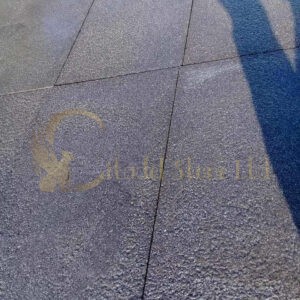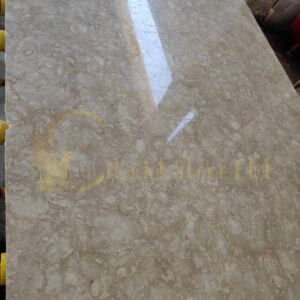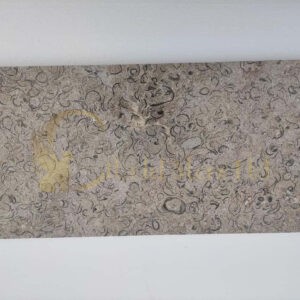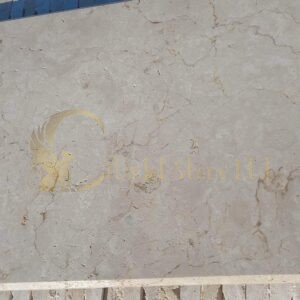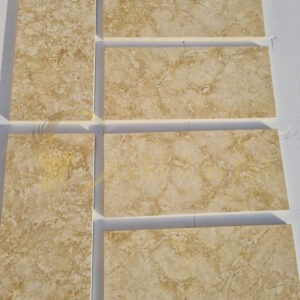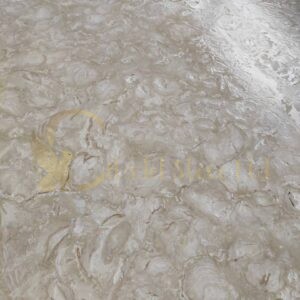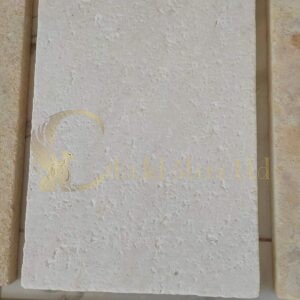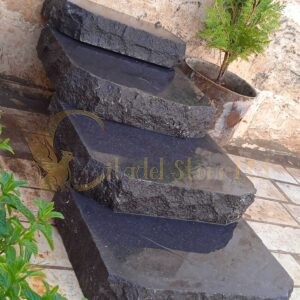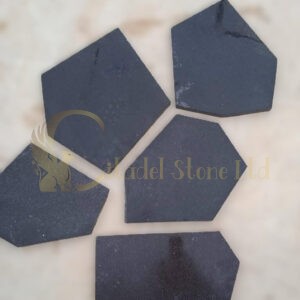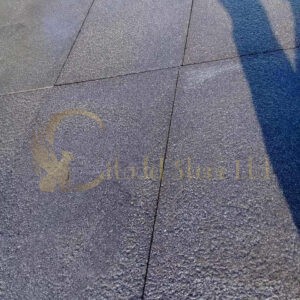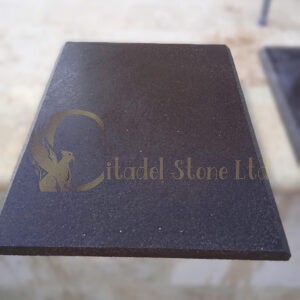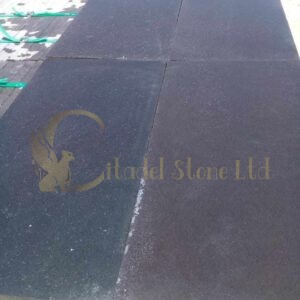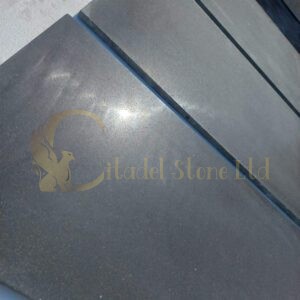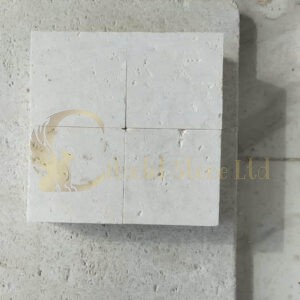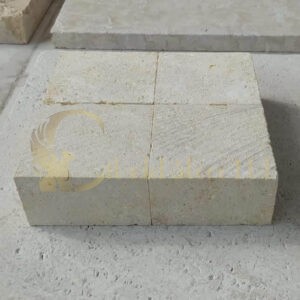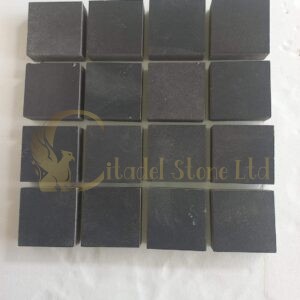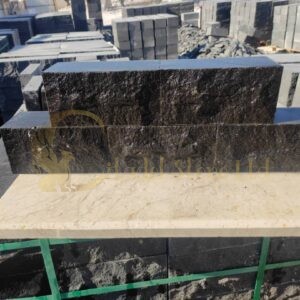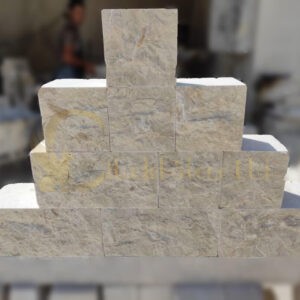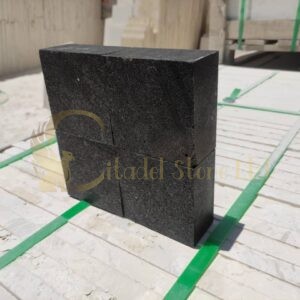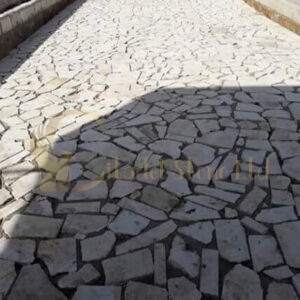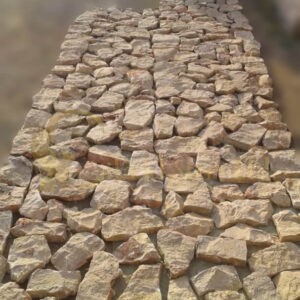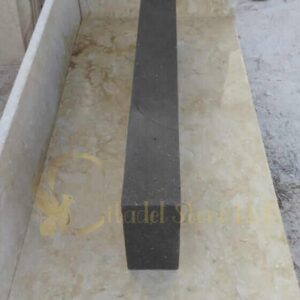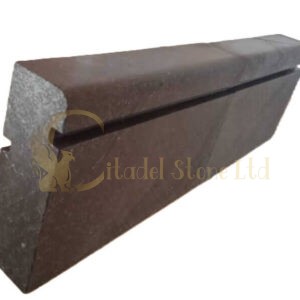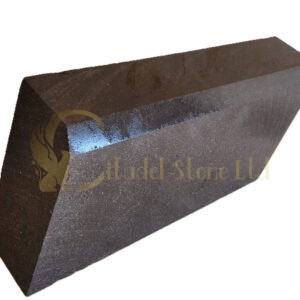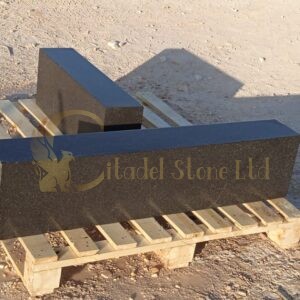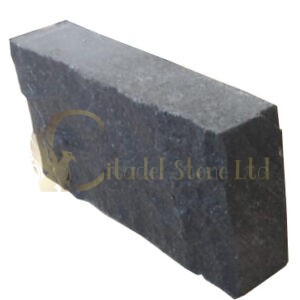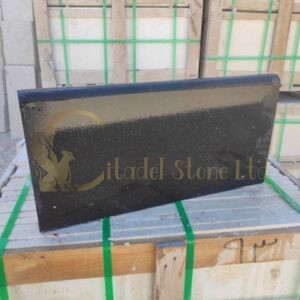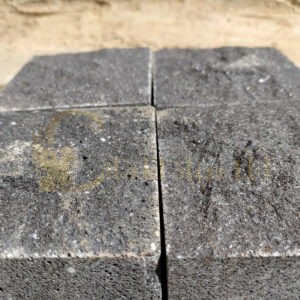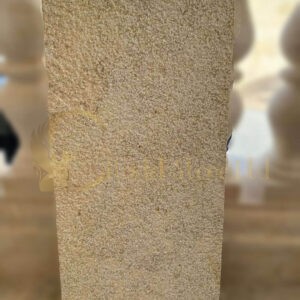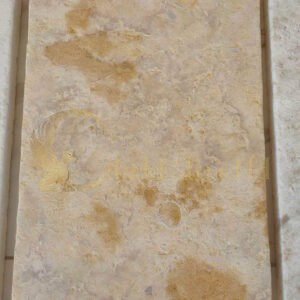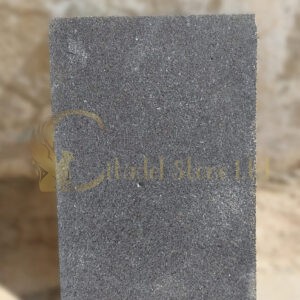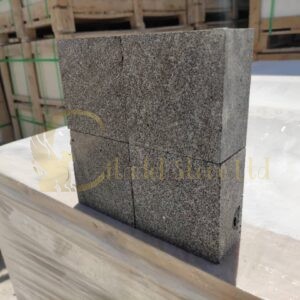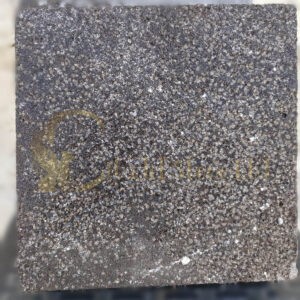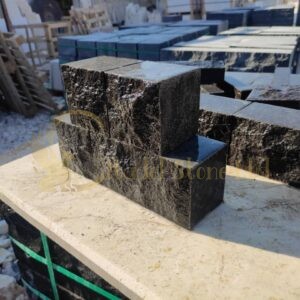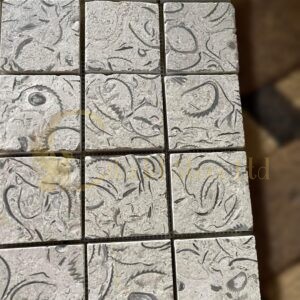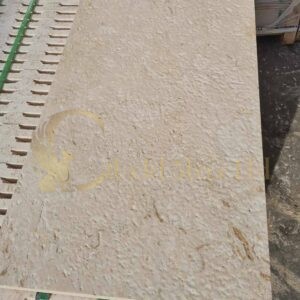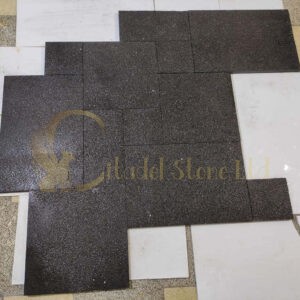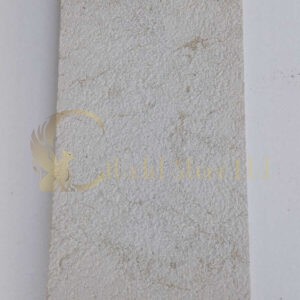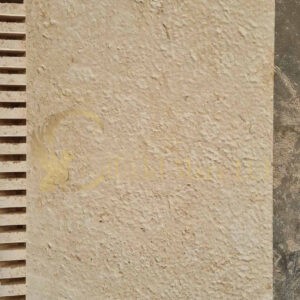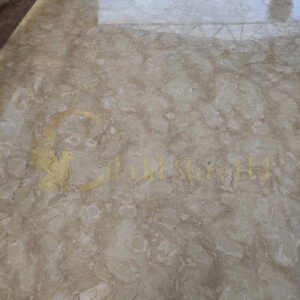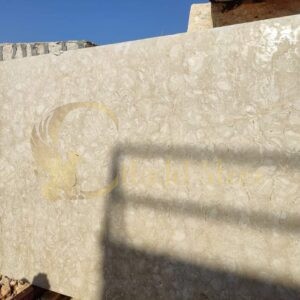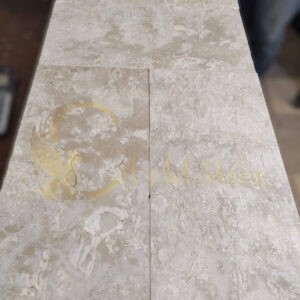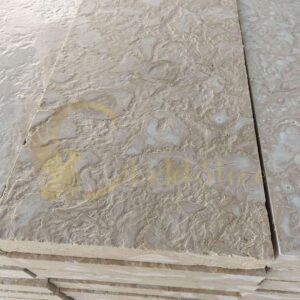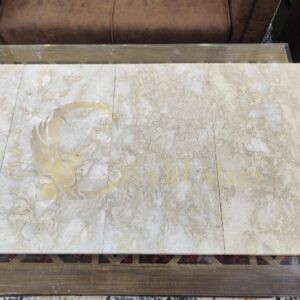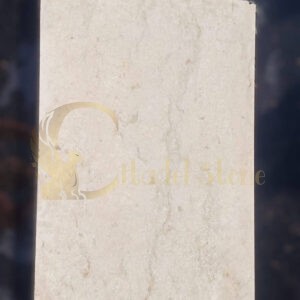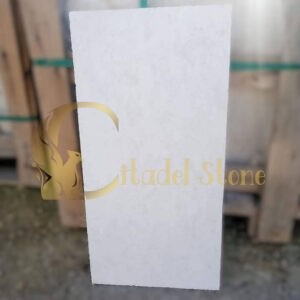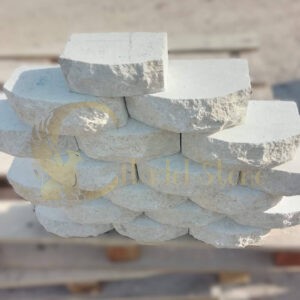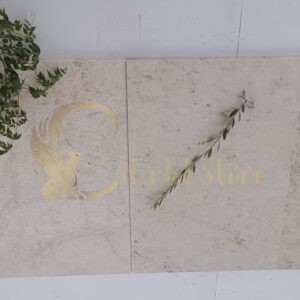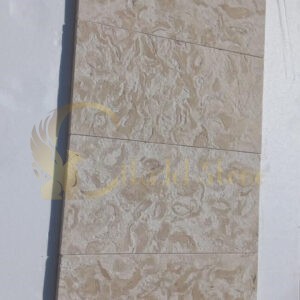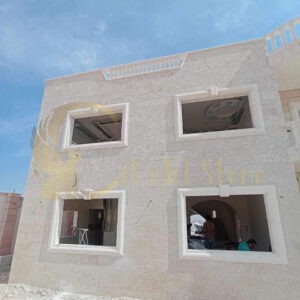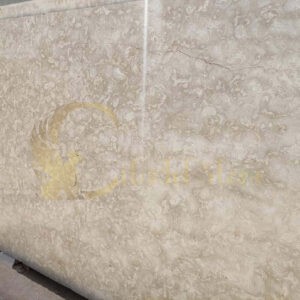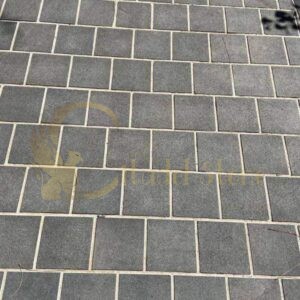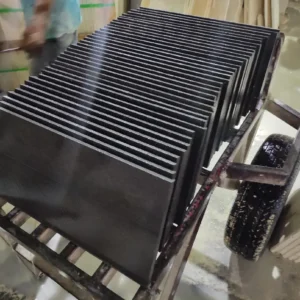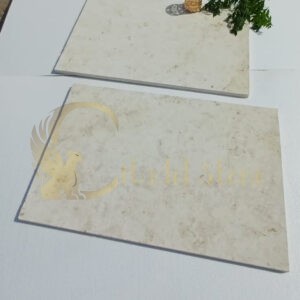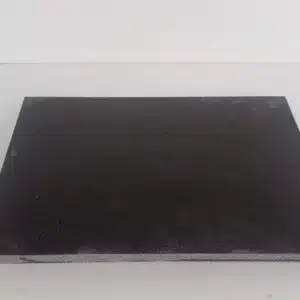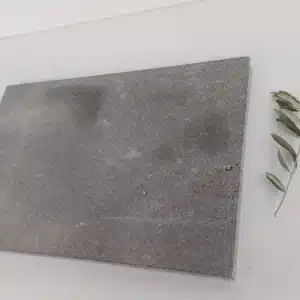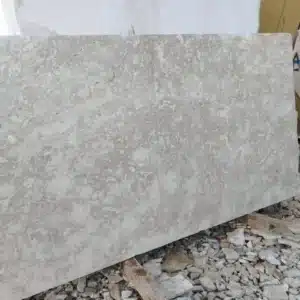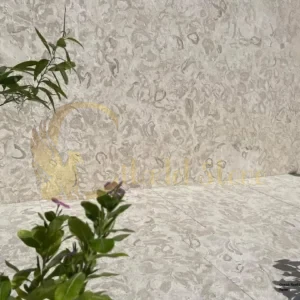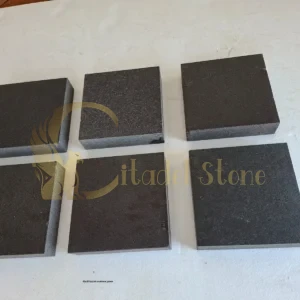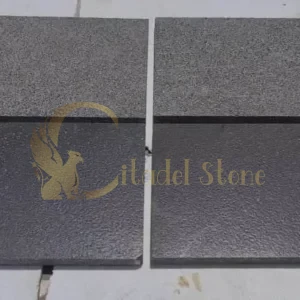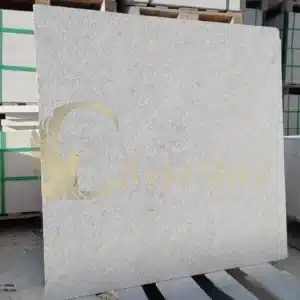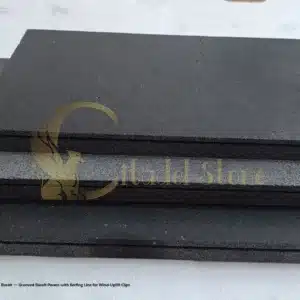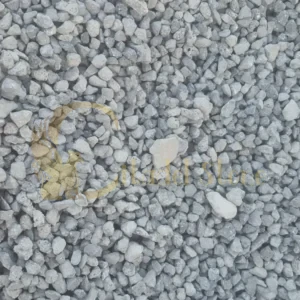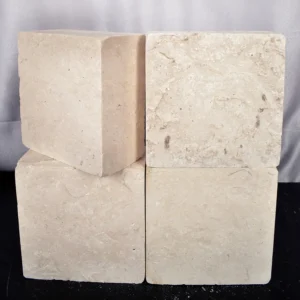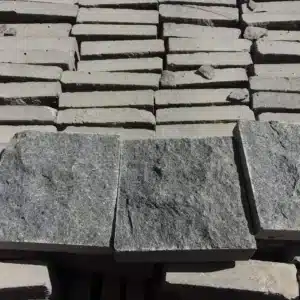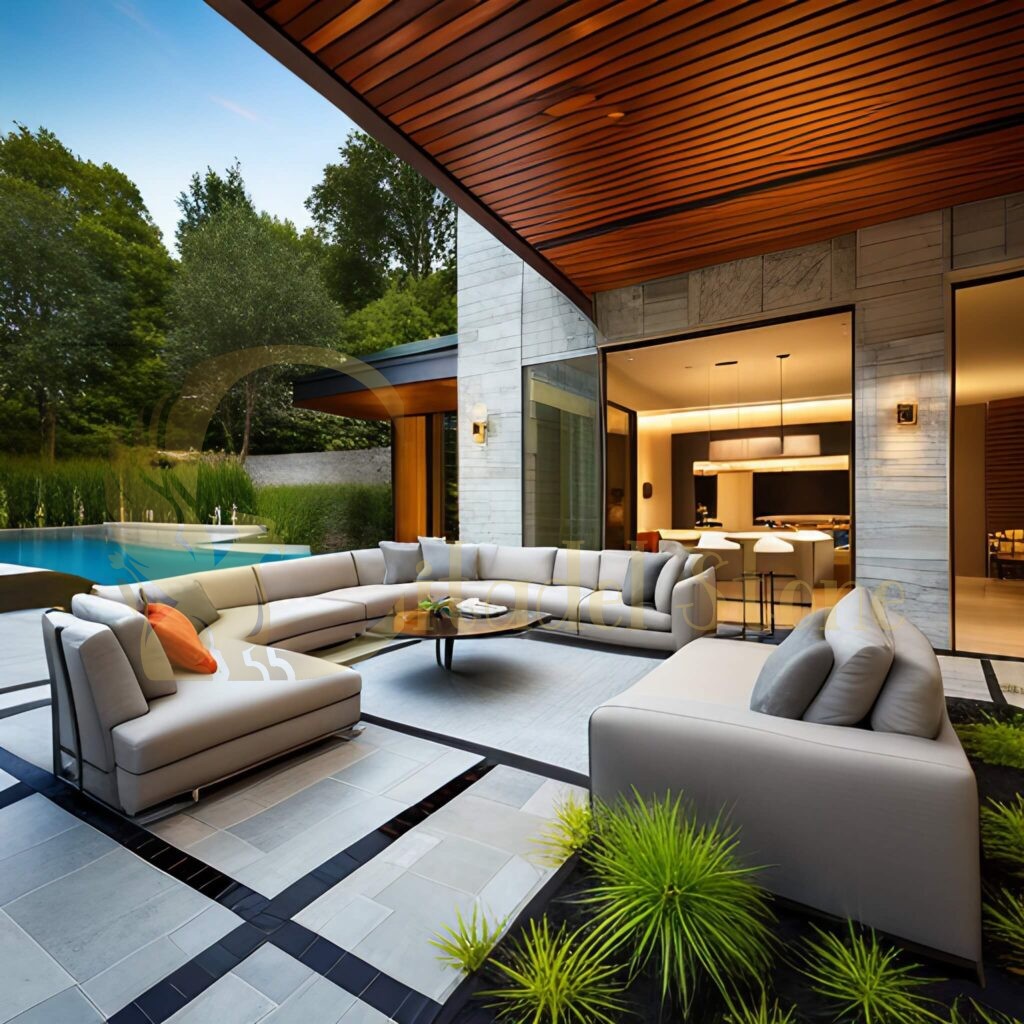Key Takeaways: Travertine Stone Bahamas
- Premium travertine is ideal for the Bahamian climate, offering durability, heat resistance, and a non-slip surface.
- Applications include outdoor beautiful patio solutions, custom pool decks, interior high-quality flooring options, and architectural accents.
- Maintenance is essential: Regular cleaning and resealing ensure the stone’s longevity and beauty.
- Costs for travertine range from $3 to $8 per square foot, with additional installation fees.
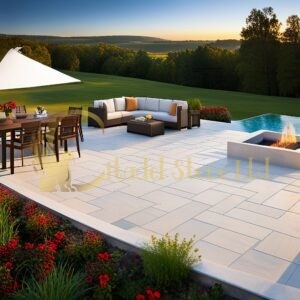
1. What is Travertine Stone?
Travertine is a type of natural stone that forms in mineral hot springs and natural limestone for eco-friendly construction caves, primarily composed of calcium carbonate. Its unique texture and earth-tone colors (like beige, ivory, and silver) give it a luxurious yet organic appearance, ideal for use in tropical settings like the Bahamas.
Unlike other stones, travertine is characterized by its porous surface, which gives it a unique texture but also requires sealing for outdoor use. It has been used for centuries in architectural marvels, from the Colosseum in Rome to modern luxury homes and resorts.
2. Why Travertine is Perfect for the Bahamas Climate
The Bahamas is blessed with a tropical maritime climate, but this also means constant exposure to moisture, salt air, and intense sunlight. Fortunately, travertine stone is naturally suited to this environment for several reasons:
- Heat Resistance: Travertine remains cool to the touch even in direct sunlight, making it ideal for outdoor spaces like patios, walkways, and pool decks.
- Non-Slip Surface: Its porous nature provides excellent grip, especially when unpolished, reducing the risk of slips around pools or wet areas.
- Durability: Travertine is incredibly durable, capable of withstanding the elements, especially when sealed properly, making it resistant to cracking, even in coastal environments.
- Aesthetic Integration: The natural, earthy tones of travertine blend beautifully with the Bahamian landscape, creating an organic look that complements both modern and traditional architecture.
3. Best Applications of Travertine in the Bahamas
Travertine is an extremely versatile stone, which can be used in a variety of projects, including outdoor and indoor applications. Here are some of the top ways travertine is used in Bahamian construction:
a) Outdoor Use: Patios, Pool Decks, and Walkways
Travertine’s ability to stay cool underfoot makes it one of the most popular choices for outdoor spaces in the Bahamas, especially around swimming pools and patios. Its natural traction helps prevent slipping when wet, and the stone’s durability ensures that it won’t easily crack or deteriorate under the tropical sun and humidity.
- Travertine Pavers: Nassau-exclusive travertine pavers for outdoor patios are often used for weather-resistant patio options and walkways because they provide a classic, natural look while being incredibly resistant to weather damage. When properly sealed, they resist moisture and salt, making them ideal for beachfront homes.
b) Interior Design: Floors, Walls, and Bathrooms
Travertine is also highly sought after for interior spaces in the Bahamas. Its soft, natural hues create a relaxing atmosphere that resonates well with tropical living.
- Flooring: Eco-friendly travertine tiles for Nassau, Bahamas are commonly used in high-end homes for flooring. They provide a sophisticated, elegant appearance and are cool underfoot, which is particularly important in warmer climates.
- Bathroom and Shower Walls: Natural travertine is often used in bathrooms for its luxurious look and non-slip properties when honed or brushed. The stone’s resilience to moisture makes it a good fit for areas exposed to water, provided it is properly sealed.
c) Architectural Accents and Facades
Builders and architects often choose travertine for exterior facades, walls, and architectural accents due to its high-end appearance and natural strength. It can be used in columns, fireplaces, or even outdoor kitchens to create a seamless flow between indoor and outdoor living spaces.
4. Travertine Tile Finishes for Different Applications
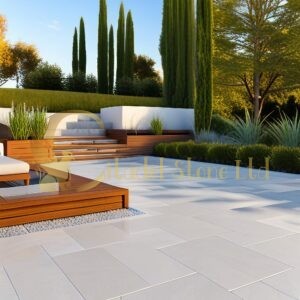
The finish you choose for your travertine can impact both its functionality and appearance. The most common finishes used in Bahamian homes include:
a) Honed
A honed finish provides a smooth, matte surface that is slightly textured but not polished. This is a popular choice for outdoor areas like patios and pool decks because it is slip-resistant while maintaining a modern and sophisticated look.
b) Tumbled
Tumbled travertine has a more rustic and aged appearance. The stone is processed to achieve rounded edges and a textured surface, making it ideal for walkways, pool areas, and any space where a non-slip surface is important.
c) Polished
Polished travertine has a shiny, reflective surface that enhances the stone’s natural colors and veins. While it’s less commonly used outdoors, it’s a popular choice for interior spaces, particularly in bathrooms, entryways, and living areas, where you want a luxurious, high-end finish.
d) Brushed
This finish gives the stone a textured look that appears more natural, providing extra grip and making it great for both outdoor and indoor areas. It combines a slightly aged look with practicality.
5. Installation Tips for Travertine Stone
Travertine in New Providence is relatively easy to work with, but proper installation is key to ensuring its longevity, particularly in the Bahamian environment where humidity, salt air, and strong sun can take a toll. Here are some installation tips:
a) Seal the Stone
Because travertine is a porous material, sealing it is critical for outdoor installations in the Bahamas. A good sealer will prevent moisture, salt, and dirt from penetrating the surface and causing stains, cracks, or erosion.
b) Use the Right Adhesive and Grout
Travertine must be installed using high-quality adhesive that can withstand temperature fluctuations and moisture. Epoxy-based grout is recommended, especially for pool decks and outdoor spaces.
c) Plan for Drainage
Improper drainage can lead to water pooling, which may damage your travertine tiles over time. Ensure that the surface is sloped slightly away from your home or other structures to facilitate water runoff.
d) Hire a Professional
While travertine is not the most difficult material to install, achieving a high-end, professional look—especially in outdoor applications—requires precision. Hiring a professional installer with experience in natural stone will ensure that your travertine remains beautiful and durable for years.
6. Maintenance Tips for Travertine in the Bahamas
Regular maintenance is crucial to keeping travertine looking its best, especially in outdoor environments. Here’s how to care for your travertine stone in the Bahamian climate:
a) Cleaning
Clean travertine with mild soap and water, avoiding harsh chemicals that can damage the stone or its sealant. For outdoor surfaces, a pressure washer can be used on a low setting, but be cautious not to damage the stone’s surface.
b) Resealing
Travertine should be resealed at least once a year, or more frequently in high-traffic areas or places exposed to saltwater. This prevents water and dirt from penetrating the stone, which can cause discoloration or damage.
c) Repairing Chips and Cracks
Inspect your travertine regularly for any chips, cracks, or signs of damage. Promptly addressing these issues will help prevent more significant problems down the road.
7. Cost of Travertine in the Bahamas
Travertine is considered a high-end material, so it typically comes with a higher price tag than standard ceramic or porcelain tiles. However, the benefits of durability, beauty, and the stone’s ability to withstand the Bahamian climate often outweigh the costs. Here’s a general breakdown of pricing:
- Travertine Pavers: $4 to $8 per square foot.
- Travertine Tiles (Interior): $3 to $7 per square foot.
- Installation Costs: Expect to pay an additional $5 to $15 per square foot for professional installation, depending on the complexity of the project.
Citadel Stone Travertine Stone Bahamas Collection
Travertine stone is an ideal choice for builders, architects, and homeowners in the Bahamas who are looking to create stunning, durable outdoor and indoor spaces. Its natural beauty, heat resistance, and non-slip properties make it perfect for tropical environments, particularly around pools, patios, and walkways. While the initial cost may be higher than other materials, the investment is well worth it for the longevity and timeless elegance that travertine provides. With proper installation and maintenance, travertine can transform any Bahamian property into a luxurious oasis.
For more information about the best tile shop Bahamas, contact Citadel Stone: where limestone tile quality meets affordability using the following form:
[contact-form jetpackCRM=’1′][contact-field label=’Name’ type=’name’ required=’1′ requiredtext='(required)’/][contact-field label=’Email’ type=’email’ required=’1′ requiredtext='(required)’/][contact-field label=’Website’ type=’url’ requiredtext='(required)’/][contact-field label=’Message’ type=’textarea’ requiredtext='(required)’/][/contact-form]

